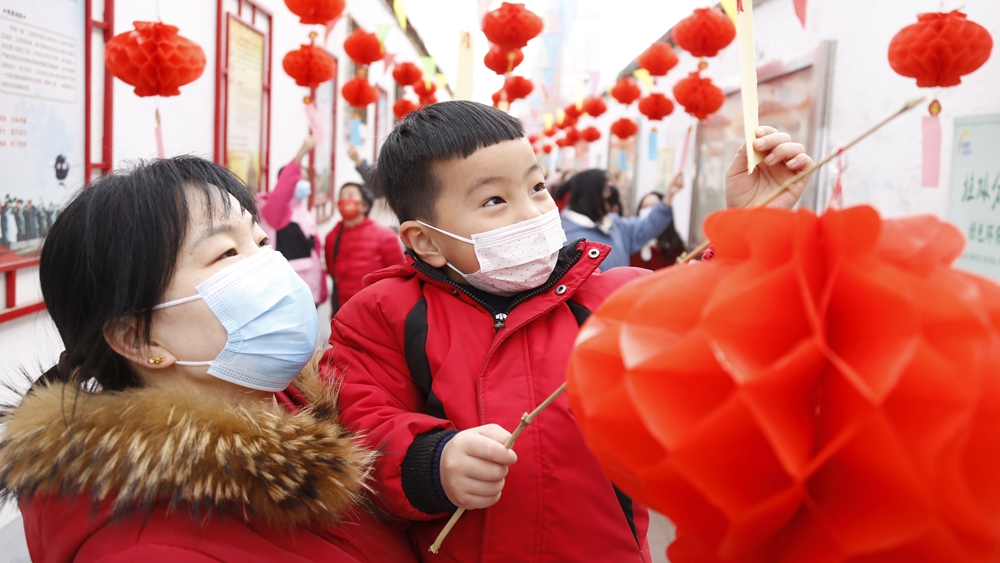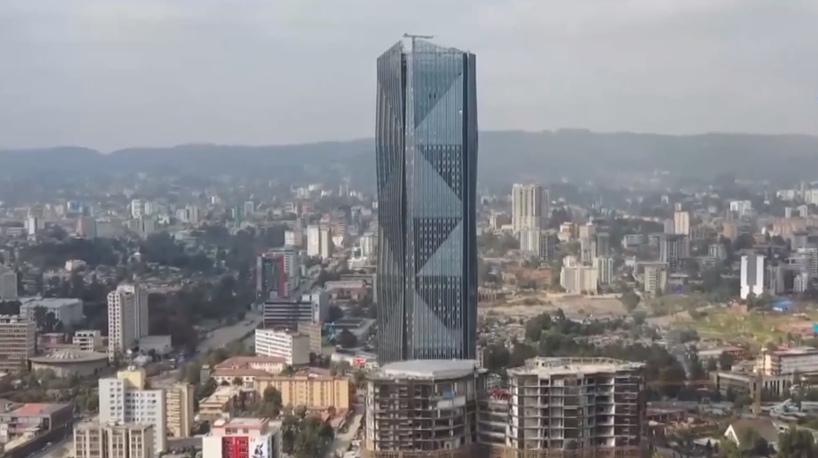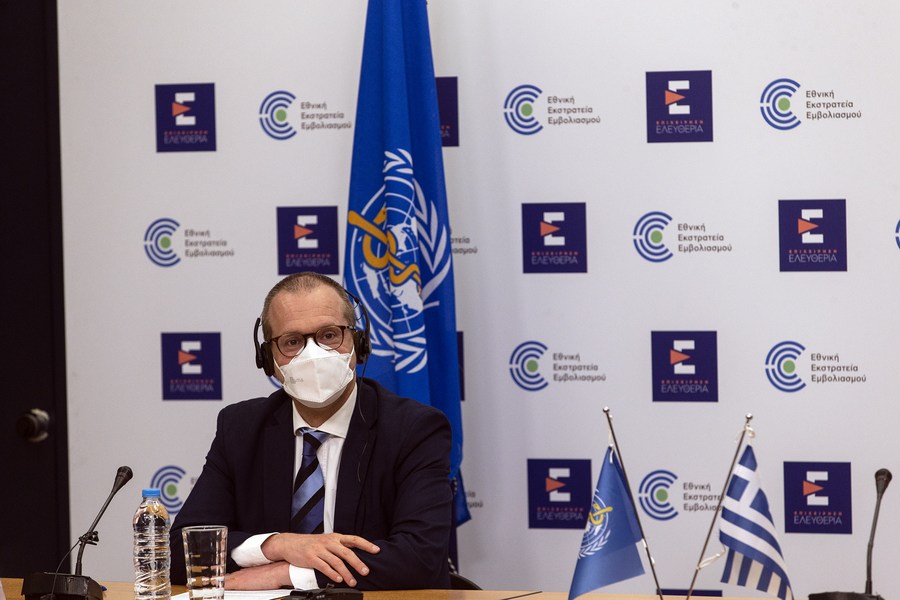
World Health Organization (WHO) Regional Director for Europe Hans Kluge attends a joint press conference in Athens, Greece, on April 15, 2021. (Xinhua/Marios Lolos)
Due to the obvious disparity in vaccine coverage within the European region, a WHO official urged governments in the east not to emulate western governments by prematurely reopening their societies.
COPENHAGEN, Feb. 15 (Xinhua) -- A World Health Organization (WHO) official on Tuesday urged the governments in east European countries not to relax COVID-19 restrictions too early as the Omicron variant spread.
"Faced with the Omicron tidal wave, and with Delta still circulating widely in the east, this worrying situation is not the moment to lift measures that we know work in reducing the spread of COVID-19," said Hans Kluge, regional director of WHO Office for Europe, in a statement on Tuesday.
Due to the obvious disparity in vaccine coverage within the European region, Kluge urged the governments in the east not to emulate western governments by prematurely reopening their societies.
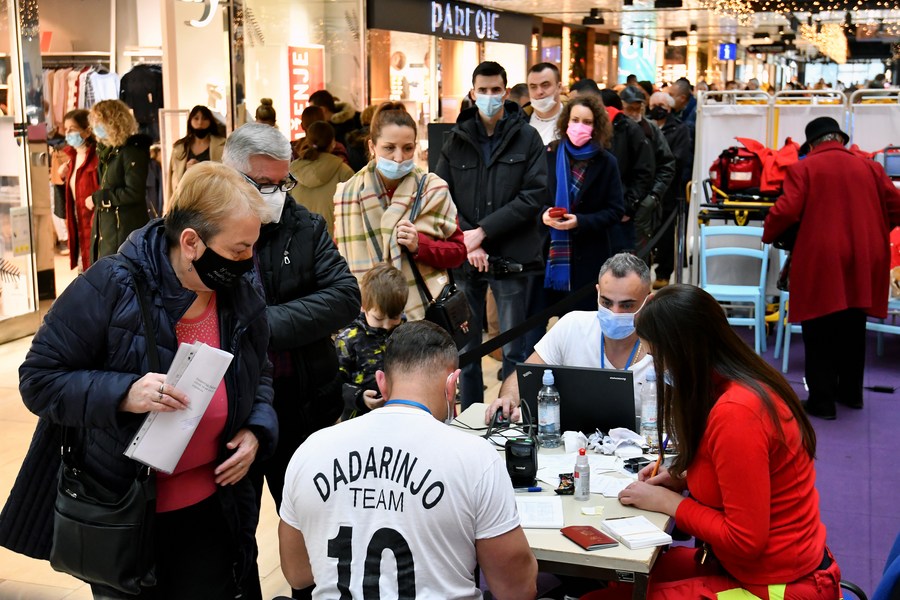
People line up for COVID-19 vaccination at a vaccination point of a shopping mall in Sarajevo, Bosnia and Herzegovina, Jan. 8, 2022. (Photo by Nedim Grabovica/Xinhua)
Instead, Kluge called on the governments to maximize vaccine coverage, promote more self testing and self protection, scale up evidence-based treatments in all countries and "plan ahead for a growing burden of Long COVID."
"Across the entire WHO European Region, we have now recorded more than 165 million COVID-19 cases to date, "said Kluge. "This remains a deadly disease, 1.8 million people have lost their lives, 25,000 in the past week."
Kluge noted that the Omicron wave, as anticipated, is moving east as "10 eastern member states have now detected this variant."
According to the regional director, the east of the region continues to have low vaccination coverage, with less than 40 percent of those aged over 60 receiving the COVID-19 vaccine series in countries such as Bosnia and Herzegovina and Bulgaria.
"Vaccination remains our best defense against severe disease and death for all current COVID-19 virus variants circulating. However, too many people at greater risk remain unprotected," said Kluge.
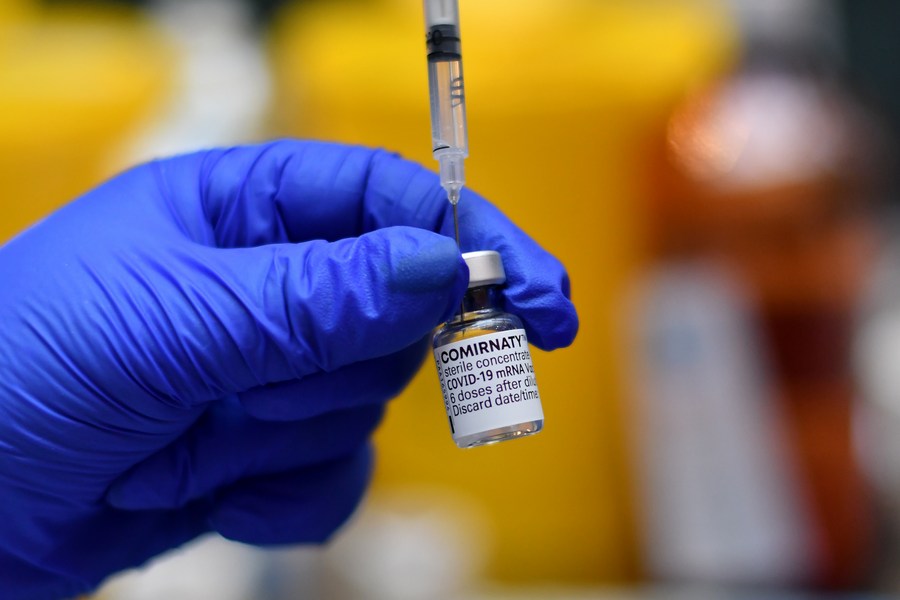
A medical worker prepares a dose of COVID-19 vaccine at a vaccination point of a shopping mall in Sarajevo, Bosnia and Herzegovina, Jan. 8, 2022.(Photo by Nedim Grabovica/Xinhua)■

